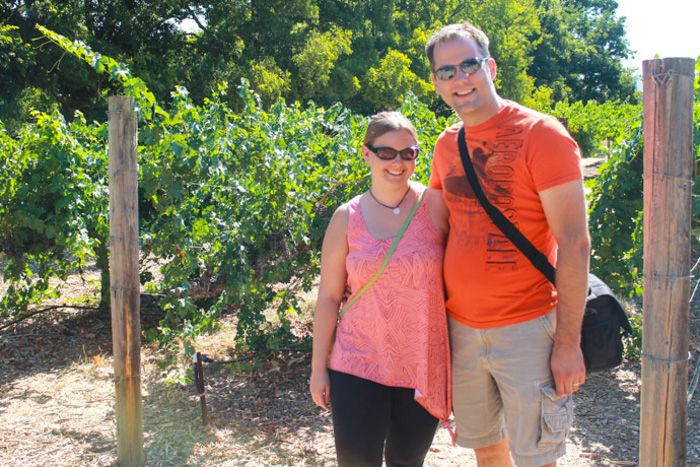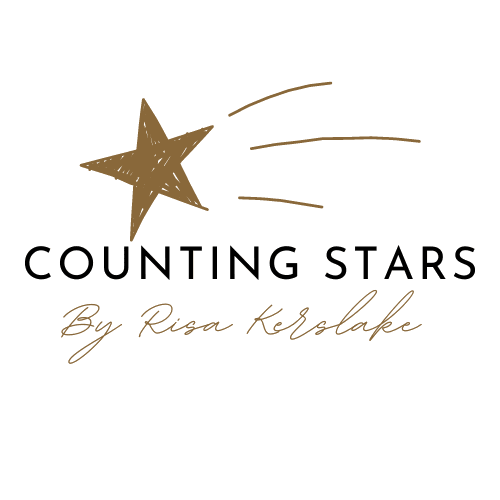Note: This article originally appeared on Mom.com on August 26, 2014. Read the original article here.

This has been a week of high emotions. So much in fact that I had to resort to writing the first draft of this post in a journal. Sort of a Dear Diary if you will.
Last weekend we met with the clinic’s psychologist to discuss the donor egg program. I wasn’t sure exactly what to expect, but I assumed it was to discuss the program itself and our feelings on it. I wouldn’t say it was a waste of time, clearly, because it’s a required piece to complete for the donor wait list. But I was surprised at what we ended up discussing.
We told the therapist a brief history of our journey and how we came to the decision to use donor eggs. She asked me how I was coping with it all and I told her I blogged about it, because it’s easier for me to write my feelings than actually say them. Which of course led to her asking me the name of the blog and that she’ll check it out, leading me to panic, thinking, Shit, she’s going to read my blog! My thoughts about everything are on there! Which of course is stupid being that the whole damn thing is sprawled out on the Internet like some sort of virtual whore.
I digress.
The thing I found very odd about the whole meeting occurred after the meeting when she handed us a list of resources and there was this big discussion on how, when and why to tell our children about their origins. There was even a section on the handout titled, “For Parents” and listed several books to buy for kids to explain everything. And the whole time I’m sitting there on the couch next to my husband, thinking, Why does this apply to me? I’m not a parent.
See, I’ve spent the last several years focused on treatments and getting pregnant and being terrified of another miscarriage. I’ve spent so much time thinking about having a baby that I haven’t ever considered myself or my husband to be future parents. That’s a term I can’t even fathom for myself right now. I wanted to glare at her. Don’t call us parents. We’re not parents.
Maybe I’ve just spent so much energy focusing on the here and now that my mind can’t deal with the fact that in the future I could possibly be bothered with problems such as telling my children they were created with help from a donor egg.
“Tell them early and tell them often,” she encouraged us, giving us several more book titles for this ghost of a future child. It’s like a homeless man being told how to put a new furnace into his house. Once we have achieved the goal, when we have survived this hell and are wearing a medal of honor for our valiant efforts around our necks and a screaming darling child on our hips, then, and only then can I deal with the psychology behind an explanation. But first I need a child.
Correction. First I need to get pregnant, stay pregnant and deliver a baby.
Talking about this future child and telling him or her about the fact that they came from a donor egg, brings up a lot of emotion. I get it. You are bringing in a third entity, another woman providing the genetic material to mix together with my husband’s genetic material. I get how my side of the family history gets wiped out and replaced with a new history. I get it. The child deserves to know their background.
But my biggest issue with that whole discussion was the fact that I want to keep this all as normal as possible and this conversation seemed to make me feel even more out of place. This is not an adoption of a child, bringing with that a set of birth parents. This is not an embryo, a little being already created with a completely different family background. If it was, I can deal with that. This, however, is an egg, given from another woman. This is not a life. An egg given to us is a wonderful gift, but it is not on the same level as an adoption of an embryo or child.
Sitting there listening to the therapist explain all the nuances that come with being a “donor family” was hard to swallow.
“Here are some age-appropriate packets for explaining the fact that your child comes from a donor.”
“Here are some websites where donor families can get together with their children so that the kids can meet each other and realize they are normal children.”
“We recommend that you tell other adults in your life not to discuss your donor situation in front of their own children under seventeen years old. That way, those children don’t come up to yours and say something like, ‘Your mom isn’t your real mom.’”
Goddamnit, why does it matter? Why does it have to matter so much? This is our child that we created who shares a genetic background with their dad and all that should matter is knowing the donor family history when they are older for their future reference. And you know what? Even that doesn’t hold a lot of clout when you think about it. Heart attack in the family? Diabetes? Breast cancer? You go down my family history and I can bet I can find someone with one of those diagnoses. I have blonde hair and brown eyes. I have a sister with brown hair and hazel eyes. So when it comes down to it, does it truly matter what the donor profile looks like?
Am I going to tell my child? Sure. Of course I am. But am I going to have a discussion with the friends and family in my life not to discuss our little situation in front of their kids so the little jerk doesn’t go and tell my child they are adopted or something? Am I going to seek out other donor families for my kid to hang out with? No. Because my child will be like any other kid. Normal. So completely normal. And when they turn eighteen and want to seek out the donor national registries to find the donor, for whatever reason is important to them, so be it.
I don’t know how I will handle the discussions with my child yet. When the time comes, I will deal with it. My energy is going to be focused on the present, just trying to bring that child into the world. That’s enough for now.
